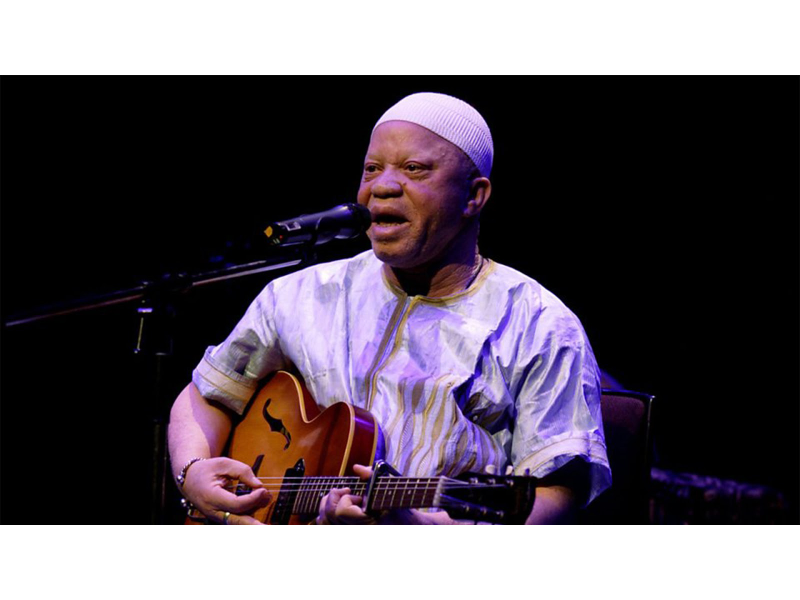On August 25, 1949, Salif Keita was born into a royal family in Djoliba, Mali, but because he was born with albinism, an inherited genetic condition that reduces the amount of melanin pigment formed in the skin, hair and/or eyes, he was cast out by his family and ostracized by the community. Albinism is seen as an omen of bad luck in Mandinka culture. Keita was also disowned by his father and kicked out of school. So in 1967, he left Djoliba at 18 years-old for Bamako, the capital of Mali.
Keita joined the government-sponsored Super Rail Band de Bamako, popular for its electrified mixture of traditional Mande music and Afro-Caribbean popular styles. In 1973, he joined the group, Les Ambassadeurs. The group had to flee Mali due to political unrest in the mid-1970s and left for Abidjan in the Ivory Coast. They changed their name toLes Ambassadeurs Internationaux. Their reputation grew to international level in the 1970s, and in 1977 Keita received a National Order award from the president of Guinea, Sékou Touré. Keita reciprocated this prestigious honour by composing ‘Mandjou,’ a praise song for Touré and the people of Mali.

In the 1980s, Keita moved to Paris to pursue a solo career and his first solo album, Soro, was highly successful with its notable stylistic elements from American and European rock and pop music, jazz, rhythm and blues, and Mande music. His Grammy-nominated 1990 release, Amen, further appealed to Western audiences. Keita used his international fame to call for the release of South Africa’s first democratic president, Nelson Mandela, at the Nelson Mandela 70th Birthday Tribute concert in 1988.
Keita’s fame helped him to overcome the stigma attached to albinism that persisted in West Africa, and he returned to Bamako in 1997 to produce two more albums in the early 2000s. His album La Différence was produced in 2009 and was a dedication to the struggle of the world albino community, with Keita calling upon others to understand that differences are not bad. “We are saying that beauty lies in difference. We must be proud of what we are,” said Keita in a 2018 Reuters interview.
La Différence was awarded a Victoire de la Musique, known as the French Grammys, and Keita was made a Peace Ambassador by the African Union in 2010. In 2005 Keita established the Salif Keita Global Foundation, an organization dedicated to raising awareness of the struggles of people with albinism and to ensure equal treatment in all societies. Keita has donated proceeds from record sales and tours to purchase sunscreen for Africans in need, and build a school and health clinic in Bamako. Keita announced his retirement from recording in 2018 to devote himself more fully to his foundation.
Source
United Nations Human Rights: People with Albinism

Boitumelo Masihleho is a South African digital content creator. She graduated with a Bachelor of Arts from Rhodes University in Journalism and Media Studies and Politics and International Studies.
She’s an experienced multimedia journalist who is committed to writing balanced, informative and interesting stories on a number of topics. Boitumelo has her own YouTube channel where she shares her love for affordable beauty and lifestyle content.





